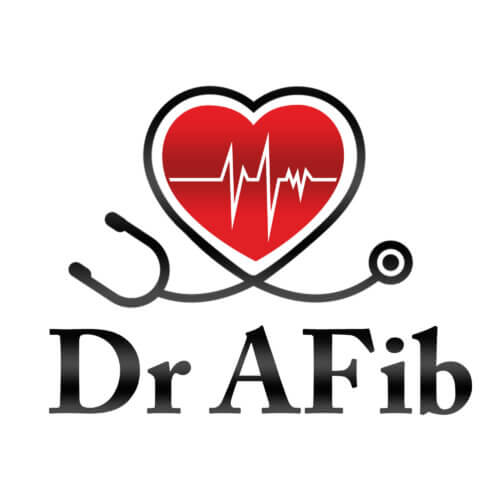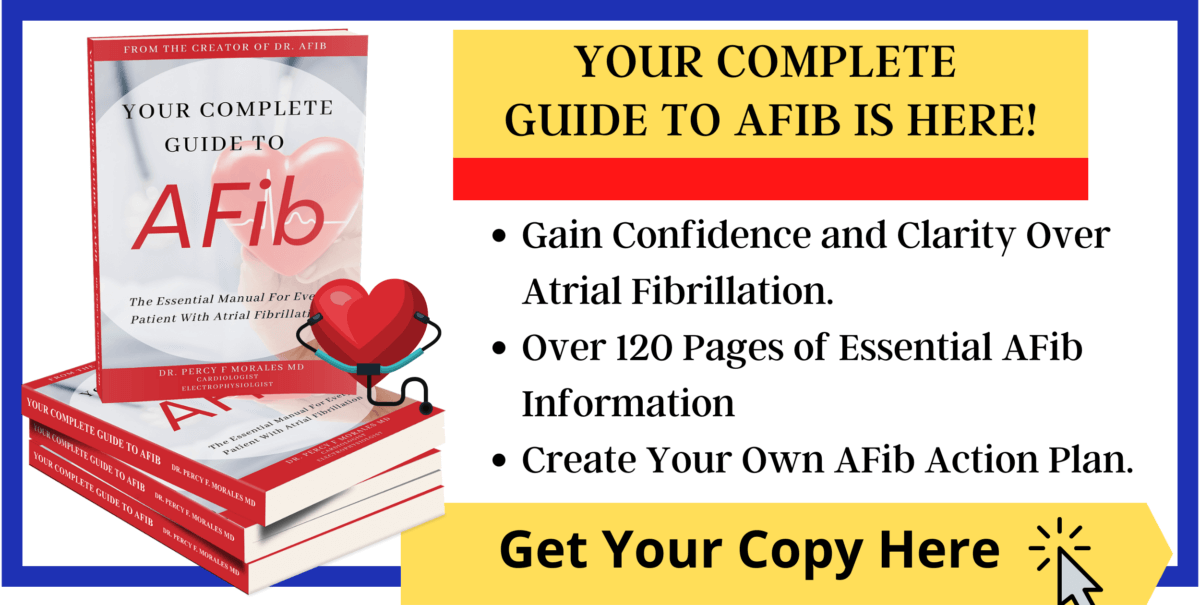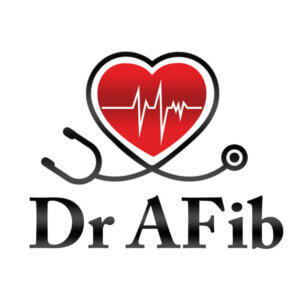Are you one of the millions of people living with atrial fibrillation (AFib) and struggling to maintain a healthy weight? If so, you might be wondering if weight loss could improve your symptoms and overall heart health. The good news is that shedding pounds might just be the key to silencing those irregular heartbeats and improving your quality of life, and you may even ask yourself, “can AFib go away with weight loss?”
In this blog post, you’ll learn about the impact of weight loss on AFib, the relationship between obesity and this common heart condition, and safe, effective strategies for losing weight while managing your AFib symptoms. Let’s dive in and discover how you can take control of your health and live a happier, healthier life with AFib by understanding the potential benefits of weight loss, including the possibility that “can AFib go away with weight loss” might be true for some individuals.
Key Takeaways
Losing weight can reduce the risk of stroke, kidney disease and heart failure for AFib patients.
Reach a 10% weight loss to improve Atrial Fibrillation with dietary modifications, regular exercise & stress management.
Regular checkups with healthcare providers are essential for successful sustained weight loss and AFib control, stay motivated!
Weight Loss and Its Impact on AFib

Weight loss can have a profoundly positive effect on AFib by reducing obesity-related risks and improving overall heart health. Losing excess body weight can provide numerous benefits for AFib patients, including:
Reduced risk of stroke
Reduced risk of kidney disease
Reduced risk of heart failure
- Reduced risk of heart attack
- Improvement in high blood pressure and diabetes
- Improvement in sleep apnea
The connection between body weight and atrial fibrillation is undeniable. Nearly one in five AFib cases is linked to being overweight or obese, and carrying excess weight is associated with a 50% increase in the risk of AFib development. By understanding this relationship and taking steps to lose weight, you can better manage your AFib symptoms and improve your overall heart health.
The Relationship Between Obesity and AFib
Obesity significantly increases the risk of AFib. It exerts extra strain on the heart, affecting blood flow and resulting in:
Elevated blood pressure
Stroke
Kidney damage
Heart disease
- Diabetes
Also, AFib is considerably more prevalent among obese individuals than non-obese ones, reinforcing the need to manage weight issues in AFib treatment.
The risk of developing AFib follows a J-shaped pattern with increasing body mass index (BMI). Those with normal and overweight BMI have the lowest risk of AFib, while those with underweight and obese BMI have a higher risk. In some cases, bariatric surgery may be considered for individuals with severe obesity to help reduce the risk of AFib and improve heart health.
Your Complete Guide To AFib: The Essential Manual For Every Patient With Atrial Fibrillation
Studies Supporting Weight Loss for AFib Management
Several groundbreaking studies have shown the benefits of weight loss in managing AFib. One study found that long-term sustained weight loss is associated with a significant reduction in AF burden and maintenance of sinus rhythm. Another clinical trial found that overweight and obese patients with AFib who lose weight experience remarkable improvements in their condition.
Furthermore, a 10% weight loss has been linked to a 27% risk reduction of AFib recurrence after ablation, highlighting the importance of weight loss in managing this condition.
How Much Weight Loss is Necessary?
Although the exact amount of weight loss needed to enhance AFib management can differ, research has shown that a 10% weight reduction can:
Decrease the risk of AFib recurrence
Improve risk factors
Lessen the burden of AFib
Reverse the atrial substrate
Markedly enhance your heart health
Attaining this weight loss goal can have significant benefits for managing AFib.
New Weight Loss Drugs and Potential Improvement in Atrial Fibrillation
Recent developments in weight loss medications have introduced new options for patients aiming to reduce their weight. Two such drugs, Ozempic and Wegovy, have shown promise in this area. There are also several similar medications coming out soon.
Ozempic, generically known as semaglutide, is primarily used to manage Type 2 diabetes but has also been found to assist in weight loss. Similarly, Wegovy, a higher-dose version of semaglutide, has been approved for chronic weight management in adults. Both drugs work by mimicking a hormone that targets areas of the brain that regulate appetite and food intake, helping to reduce hunger and increase feelings of fullness.
Both medications have shown promise in improving risk for cardiovascular disease through weight loss but have not been specifically studied for atrial fibrillation yet. However, I suspect those studies will emerge on day.
There is potential that these weight loss drugs could indirectly benefit patients with atrial fibrillation (AFib). Weight loss has been shown to reduce the burden of AFib, improve AFib symptoms, and potentially reverse the atrial substrate. Therefore, effective weight loss medications such as Ozempic and Wegovy could play a role in AFib management.
However, it’s important to note that more research is needed to fully understand the impact of these drugs on AFib. While initial findings are promising, comprehensive studies are necessary to ascertain the extent of their effect on AFib, particularly whether they can contribute to sustained weight loss and long-term improvements in AFib symptoms. Always consult with your healthcare provider before starting any new medication or weight loss plan.
Strategies for Safe and Effective Weight Loss with AFib
To successfully lose weight while managing AFib, making dietary modifications, engaging in regular exercise, and managing stress are all excellent and safe strategies. By adopting these approaches, you can not only reach your weight loss goals but also improve your overall heart health and reduce your risk of AFib-related complications.
It’s important to remember that everyone’s journey is unique, and what works for one person may not work for another. Therefore, it’s crucial to consult with your healthcare provider to determine the best weight loss strategies for your individual circumstances and ensure you’re on the right track for success.
Diet Modifications

Adopting a balanced diet is key to losing weight safely and effectively for AFib patients. Instead of following fad diets that can exacerbate your symptoms, focus on consuming a variety of heart-healthy foods, such as:
lean proteins
whole grains
fruits
vegetables
Some popular heart-healthy diets include the Mediterranean diet and plant-based diets rich in fruits, vegetables, and unsaturated fats.
To ensure optimal heart health and minimize the risks associated with fad diets, it’s best to stick to dietary patterns that prioritize:
Whole, nutrient-dense foods
Avoid processed foods
Avoid sugary treats
Avoid excessive consumption of red meat
By making these sustainable dietary changes, you’ll be well on your way to achieving your weight loss goals and improving your AFib symptoms.
Exercise Recommendations
Exercise plays a crucial role in supporting weight loss and heart health for AFib patients. Engaging in regular physical activity can help maintain a normal heart rhythm and boost overall heart health. However, it’s essential to consult with your healthcare provider to determine the best types and intensity of exercise for your unique circumstances.
Safe and effective exercises for AFib patients include:
Walking
Swimming
Cycling
Strength training with light weights or resistance bands
Yoga or gentle stretching exercises
Aim for at least 150 minutes of moderate-intensity activity per week, and remember to start slowly and gradually increase the intensity of exercise to avoid triggering symptoms.
Stress Management and Lifestyle Factors
Managing stress and adopting a healthy lifestyle are crucial components of weight loss and AFib management. High stress levels can trigger AFib episodes, making it essential to incorporate stress management techniques such as yoga, meditation, and mindfulness into your daily routine.
In addition to stress management, focusing on other lifestyle factors like getting enough sleep, avoiding smoking, and limiting alcohol consumption can further support your weight loss and AFib management goals. By taking a holistic approach to your health, you’ll be better equipped to successfully manage your weight and AFib symptoms.
Take Control Over AFib: A Step-by-Step Program for Lifestyle Modifications
The Take Control Over AFib program is designed to provide a comprehensive, step-by-step guide for lifestyle modifications aimed at improving atrial fibrillation. This program focuses on empowering individuals with AFib to take charge of their health through informed choices and sustainable changes.
The program provides detailed instructions on various aspects of lifestyle modifications, including dietary changes, physical activity, stress management, and sleep hygiene. Each of these elements plays a crucial role in managing AFib and improving heart health.
Dietary changes include recommendations for heart-healthy foods and advice on how to avoid foods that may exacerbate AFib symptoms. The program also provides guidance on how to incorporate regular physical activity into daily routines, with exercises tailored to the individual’s current fitness level and health status.
Stress management techniques are another key component of the program. Participants are taught various methods to reduce stress, such as mindfulness, yoga, and deep breathing exercises. Recognizing the link between sleep and heart health, the program also provides advice on improving sleep hygiene.
By following the Take Control Over AFib program, individuals can make meaningful changes that not only improve their atrial fibrillation but also enhance their overall health and quality of life.
Learn More About The Take Control Over AFib Program Here.
Potential Risks and Challenges in Weight Loss for AFib Patients

While weight loss can offer numerous benefits for AFib patients, it’s important to be aware of potential risks and challenges. Rapid weight loss, fad diets, and balancing AFib treatment with weight loss goals can all pose difficulties for those trying to shed pounds and manage their condition.
By understanding these potential pitfalls, you can take proactive steps to avoid them and ensure your weight loss journey is both safe and effective. In the following subsections, we’ll discuss these challenges in detail and provide guidance on how to navigate them.
Rapid Weight Loss and Heart Health
Although rapid weight loss can provide some benefits for AFib patients, such as reduced risk of abnormal heart rhythm and improved heart health, it can also be harmful. Sudden and significant weight loss can cause electrolyte imbalances and nutritional deficiencies, both of which can negatively affect heart health.
To circumvent these possible problems, consulting with a healthcare professional to ascertain the most suitable rate of weight loss for your personal situation is necessary. Following a safe and sustainable weight loss plan allows you to maintain your heart health while achieving your healthy weight objectives.
Fad Diets and AFib
Fad diets, particularly low-carbohydrate ones, can exacerbate AFib symptoms such as an irregular heartbeat, heart palpitations, and dizziness. These diets often lead to a decreased intake of vegetables, fruits, and grains, which are known to reduce inflammation and support heart health.
Instead of following fad diets, focus on adopting a balanced and heart-healthy diet, such as the Mediterranean diet or a plant-based diet rich in fruits, vegetables, and unsaturated fats. By making these sustainable dietary changes, you’ll be well on your way to improving your AFib symptoms while safely losing weight.
Balancing AFib Treatment with Weight Loss Goals
Balancing AFib treatment with weight loss goals can be challenging but is crucial for optimal results. Here are some important aspects to consider:
Managing associated risk factors such as sleep apnea and alcohol consumption
Achieving significant weight reduction
Maintaining long-term sustained weight loss
By closely monitoring your progress and working with your healthcare provider, you can ensure that your treatment plan is adjusted appropriately to accommodate your weight loss goals without jeopardizing your AFib management.
Monitoring Progress and Adjusting Treatment Plans

Tracking progress and modifying treatment plans are necessary for successful weight loss and AFib control. Routine check-ups with healthcare providers, keeping tabs on weight loss and AFib symptoms, and adjusting treatment plans based on progress can support your continued success in managing both your weight and AFib.
In the following subsections, we’ll discuss the importance of regular check-ups, tracking your progress, and adapting your treatment plans to ensure you’re on the right track toward achieving your weight loss and AFib management goals.
Regular Check-ups with Healthcare Providers
Regular check-ups with healthcare providers are crucial for tracking your progress and addressing any concerns related to your weight loss and AFib management. During these appointments, your healthcare provider may perform or order tests such as electrocardiograms (EKGs) and stress tests to help accurately diagnose and manage your AFib.
By attending all follow-up appointments and staying in touch with your healthcare provider, you can ensure that you’re receiving the best care possible and making informed decisions about your weight loss and AFib treatment plans.
Tracking Weight Loss and AFib Symptoms
Monitoring your weight loss and AFib symptoms can offer useful information about the effectiveness of your treatment plans and help maintain your motivation. Regularly recording your weight, symptoms, and any changes in your condition can assist in identifying patterns and ensure your healthcare provider has the necessary information for making educated treatment decisions.
There are several helpful tools and apps available to support you in tracking your weight loss and AFib symptoms, such as KardiaMobile, Apple Watch, CareClinic, Fitbit Inspire 3, and Fitbit Charge 6. However, it’s important to consult with a healthcare professional for personalized recommendations and guidance in managing your weight loss and AFib symptoms.
KardiaMobile 6-Lead Personal EKG Monitor – Six Views of The Heart – Detects AFib and Irregular Arrhythmias – Instant Results in 30 Seconds – Works with Most Smartphones – FSA/HSA Eligible
13% OffAdapting Treatment Plans Based on Progress
As you progress in your weight loss journey, it’s essential to adapt your treatment plans accordingly to ensure continued success in managing both your weight and AFib. Your healthcare provider may adjust your medication dosages or even discontinue certain medications as you lose weight and improve your heart health.
By working closely with your healthcare provider and monitoring your progress, you can ensure that your treatment plans are optimized for your unique needs and circumstances, ultimately leading to better health outcomes and an improved quality of life.
Summary
In conclusion, weight loss can have a transformative impact on both your AFib management and overall heart health. By addressing obesity-related risks, adopting a balanced diet, engaging in regular exercise, and managing stress, you can improve your heart health and reduce your risk of AFib-related complications.
Remember that everyone’s journey is unique, and it’s essential to work closely with your healthcare provider to develop a personalized weight loss and AFib management plan. Stay committed to your goals, monitor your progress, and make adjustments as needed, and you’ll be well on your way to a happier, healthier life with AFib.
Frequently Asked Questions
Can AFib go away on its own?
Yes, Paroxysmal AFib can go away on its own. However, it is important to monitor your risk factors and seek medical help if the symptoms don’t improve or persist over time as this could lead to serious complications. Regular follow up with your doctor is crucial to prevent recurrence of atrial fibrillation and address risk factors.
How do I stop AFib from progressing?
To stop AFib from progressing, it is important to seek professional help and follow treatment which may involve medication, cardioversion, catheter ablation or other measures such as treating any underlying disorder, lifestyle changes and medications.
Can losing weight help reduce heart palpitations?
Yes, losing weight can help reduce heart palpitations. Studies have found that those who shed at least 10% of their body weight were 6 times less likely to experience an abnormal heartbeat, and those who maintained their weight loss within 2% had a significant reduction in AFib.
What are some safe and effective weight loss strategies for AFib patients?
Opting for healthy diet modifications, committing to regular physical exercise, and managing stress levels are all effective and safe strategies for AFib patients seeking to reach a healthy weight. Learn more about a step by step plan to improve atrial fibrillation naturally with the Take Control Over AFib Program here.
Can AFib go away with lifestyle changes?
Yes, lifestyle changes can significantly impact the management of AFib and may even lead to the reduction or elimination of symptoms in some cases. These changes may include weight loss, regular exercise, a heart-healthy diet, limiting alcohol and caffeine, quitting smoking, and managing stress. However, the effectiveness of lifestyle changes can vary from person to person, and it is important to continue any prescribed medical treatments and follow the advice of your healthcare provider.
The Best Atrial Fibrillation Book
Your Complete Guide To AFib: The Essential Manual For Every Patient With Atrial Fibrillation

Shop AFib Products on Amazon
KardiaMobile 6-Lead Personal EKG Monitor – Six Views of The Heart – Detects AFib and Irregular Arrhythmias – Instant Results in 30 Seconds – Works with Most Smartphones - FSA/HSA Eligible
13% Off
KardiaMobile 1-Lead Personal EKG Monitor – Record EKGs at Home – Detects AFib and Irregular Arrhythmias – Instant Results in 30 Seconds – Easy to Use – Works with Most Smartphones - FSA/HSA Eligible
$79.00 (as of June 16, 2025 15:14 GMT -06:00 - More infoProduct prices and availability are accurate as of the date/time indicated and are subject to change. Any price and availability information displayed on [relevant Amazon Site(s), as applicable] at the time of purchase will apply to the purchase of this product.)
Apple Watch Series 9 [GPS 41mm] Smartwatch with Storm Blue Aluminum Case with Silver Sport Band M/L. Fitness Tracker, Blood Oxygen & ECG Apps, Always-On Retina Display
(as of June 16, 2025 08:46 GMT -06:00 - More infoProduct prices and availability are accurate as of the date/time indicated and are subject to change. Any price and availability information displayed on [relevant Amazon Site(s), as applicable] at the time of purchase will apply to the purchase of this product.)
Fitbit Sense 2 Advanced Health and Fitness Smartwatch with Tools to Manage Stress and Sleep, ECG App, SpO2, 24/7 Heart Rate and GPS, Shadow Grey/Graphite, One Size (S & L Bands Included)
10% Off
OMRON 2-in-1 Upper Arm Blood Pressure Monitor & 1-Lead EKG Monitor - Clinically Validated Blood Pressure Arm Cuff & Machine - Use OMRON Connect App
24% Off
Samsung Galaxy Watch 6 44mm Bluetooth Smartwatch, Fitness Tracker, Personalized HR Zones, Advanced Sleep Coaching, Heart Monitor, BIA Sensor, Health Wellness Insights, Big Screen, US Version, Graphite
$353.21 (as of June 16, 2025 20:35 GMT -06:00 - More infoProduct prices and availability are accurate as of the date/time indicated and are subject to change. Any price and availability information displayed on [relevant Amazon Site(s), as applicable] at the time of purchase will apply to the purchase of this product.)
Natural Rhythm Triple Calm Magnesium 150 mg - 120 Capsules – Magnesium Complex Compound Supplement with Magnesium Glycinate, Malate, and Taurate. Calming Blend for Promoting Rest and Relaxation.
$20.77 ($0.17 / Count) (as of June 16, 2025 18:03 GMT -06:00 - More infoProduct prices and availability are accurate as of the date/time indicated and are subject to change. Any price and availability information displayed on [relevant Amazon Site(s), as applicable] at the time of purchase will apply to the purchase of this product.)
Pure Encapsulations Magnesium (Glycinate) - Supplement to Support Stress Relief, Sleep, Heart Health, Nerves, Muscles, and Metabolism* - with Magnesium Glycinate - 180 Capsules
$44.60 ($0.25 / Count) (as of June 16, 2025 08:46 GMT -06:00 - More infoProduct prices and availability are accurate as of the date/time indicated and are subject to change. Any price and availability information displayed on [relevant Amazon Site(s), as applicable] at the time of purchase will apply to the purchase of this product.)
















![Apple Watch Series 9 [GPS 41mm] Smartwatch with Storm Blue Aluminum Case with Silver Sport Band M/L. Fitness Tracker, Blood Oxygen & ECG Apps, Always-On Retina Display #1](https://m.media-amazon.com/images/I/311xwtp4mFL._SL100_.jpg)
![Apple Watch Series 9 [GPS 41mm] Smartwatch with Storm Blue Aluminum Case with Silver Sport Band M/L. Fitness Tracker, Blood Oxygen & ECG Apps, Always-On Retina Display #2](https://m.media-amazon.com/images/I/41j+8AaUGsL._SL100_.jpg)
![Apple Watch Series 9 [GPS 41mm] Smartwatch with Storm Blue Aluminum Case with Silver Sport Band M/L. Fitness Tracker, Blood Oxygen & ECG Apps, Always-On Retina Display #3](https://m.media-amazon.com/images/I/41jIyxZitnL._SL100_.jpg)
![Apple Watch Series 9 [GPS 41mm] Smartwatch with Storm Blue Aluminum Case with Silver Sport Band M/L. Fitness Tracker, Blood Oxygen & ECG Apps, Always-On Retina Display #4](https://m.media-amazon.com/images/I/41IpNJERjCL._SL100_.jpg)
![Apple Watch Series 9 [GPS 41mm] Smartwatch with Storm Blue Aluminum Case with Silver Sport Band M/L. Fitness Tracker, Blood Oxygen & ECG Apps, Always-On Retina Display #5](https://m.media-amazon.com/images/I/31o17yhfYpL._SL100_.jpg)





































